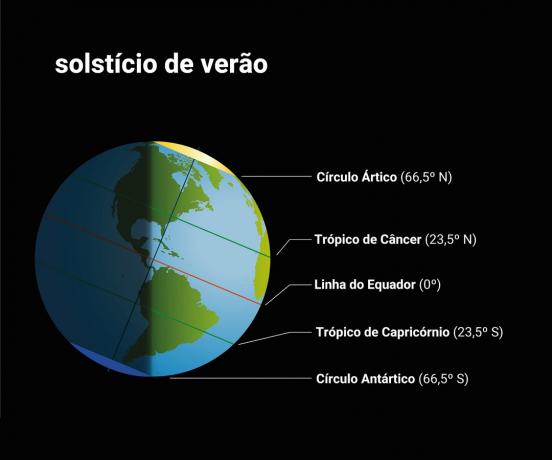The concept of the global village was created in the 1960s by the Canadian philosopher Marshall McLuhan, then professor at the School of Communications at the University of Toronto.
According to this concept, advances in information and communication technologies shorten distances in the world and facilitate cultural exchanges between different peoples.
The author believed that, due to the reduction of distances and geographic barriers, the planet would be reduced to an organization similar to villages, where everything and everyone would be interconnected.
The term global village was popularized in his books “The Gutenberg Galaxy”, published in 1962 and “The Media as the Extension of Man”, from 1964.
Global Village and the Media
Mcluhan created the concept in the 1960s, a period in which there were important developments in the media - especially with the satellite transmissions and the popularization of TV sets.
It was the development of these technologies that allowed scenes of Americans killed in the Vietnam War to be broadcast and affect public opinion about the conflict. It also allowed people around the world to watch the arrival of man on the moon.
Mcluhan believed that the media would greatly reduce the fragmentation of geographic space. Thus, an event anywhere in the world could cause reflections in distant places.
He believed that time and space were being relativized, as it would be increasingly possible to be in contact with people thousands of miles away, in a few seconds.
Global village and virtual networks
The author spoke about virtual networks and the unification of the world in a global mesh (or global web). Because of this understanding, followers of the philosopher believe that he would have “foreseen” what we now know as the internet.
The author chose TV as a paradigm for his theory of the global village. That is, it would be this means of mass communication that would bring people together and shorten distances on the planet.
Communication scholars, however, claim that Mcluhan would have forgotten that in a village the forms of communication are bidirectional, that is, they occur between two (or more) individuals. Television, in turn, would have a form of unidirectional communication.
Thus, it can be said that a condition more similar to what the Canadian philosopher predicted began to happen with the popularization of the telephone and, more recently, of the internet.
See also the meaning of Communication and Internet.
global village and globalization
The concept of a global village would be directly related to the concept of globalization - a process through which peoples and nations come together. This approximation tends to a homogenization in several aspects, such as cultural, political and, mainly, economic.
Globalization is the result of the development of the capitalist system all over the world, especially since the end of the Cold War. This phenomenon is further strengthened by neoliberalism, a current of thought that defends economic freedom and little State intervention in the economy.
Globalization has as its main characteristics the speed in the flow of information and people, which was made possible by the development of technologies.
Learn more about globalization and yours features.
Criticism of the concept of the global village
The concept of the global village has many supporters, but it is also the target of much criticism due to its weak theoretical foundation.
Milton Santos, one of the most renowned geographers in Brazil and the world, criticizes the concept of the global village. According to him, the concept makes us believe in the false idea that the immediate dissemination of news, in fact, informs people.
Furthermore, for him, the concept of the global village is a fable, as it makes us believe that the facilities of the globalized world are within everyone's reach. But in fact, globalization accentuates inequalities between different regions of the world.
See also the meaning of Capitalism, neoliberalism and Types of Globalization.


